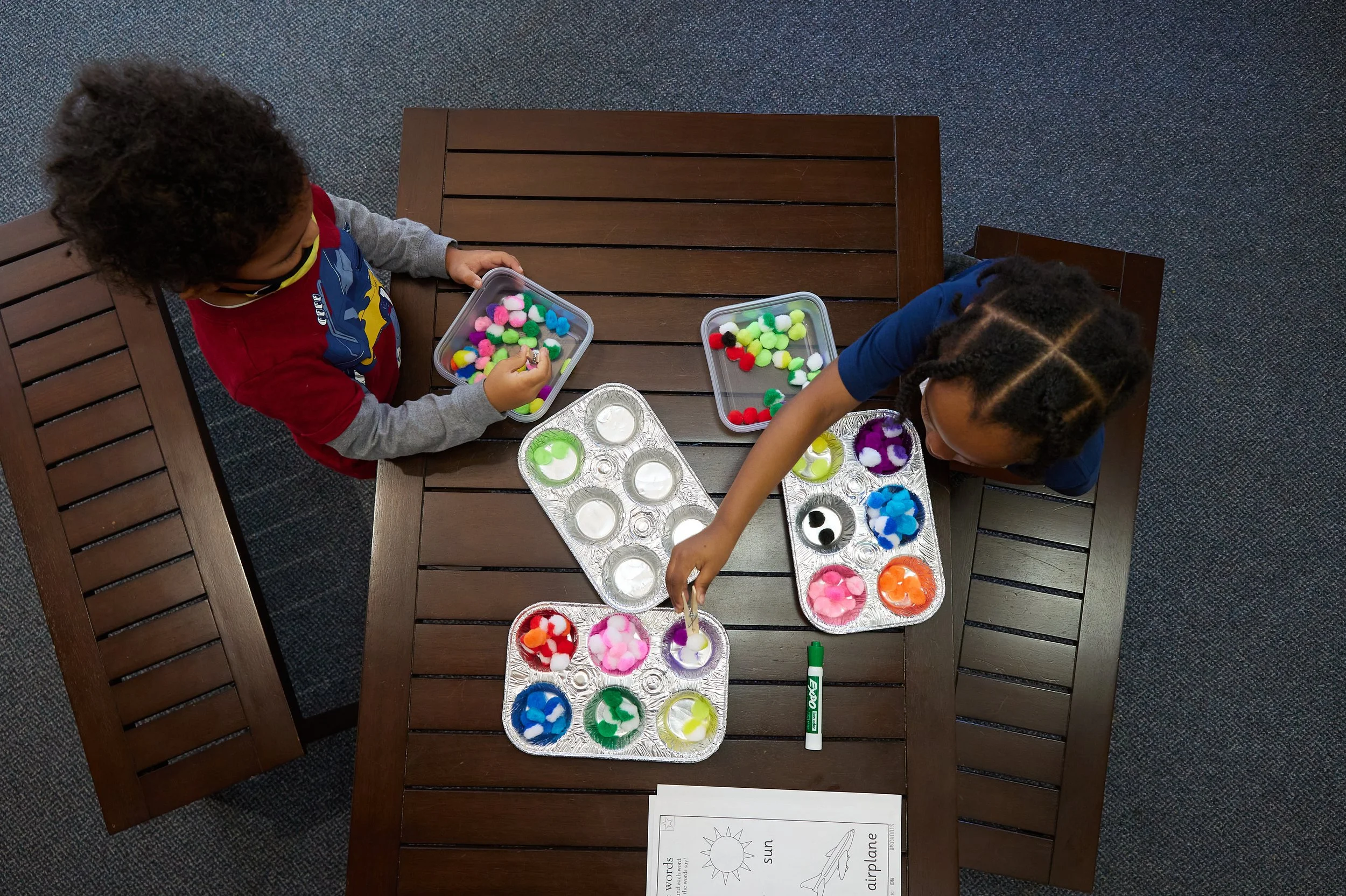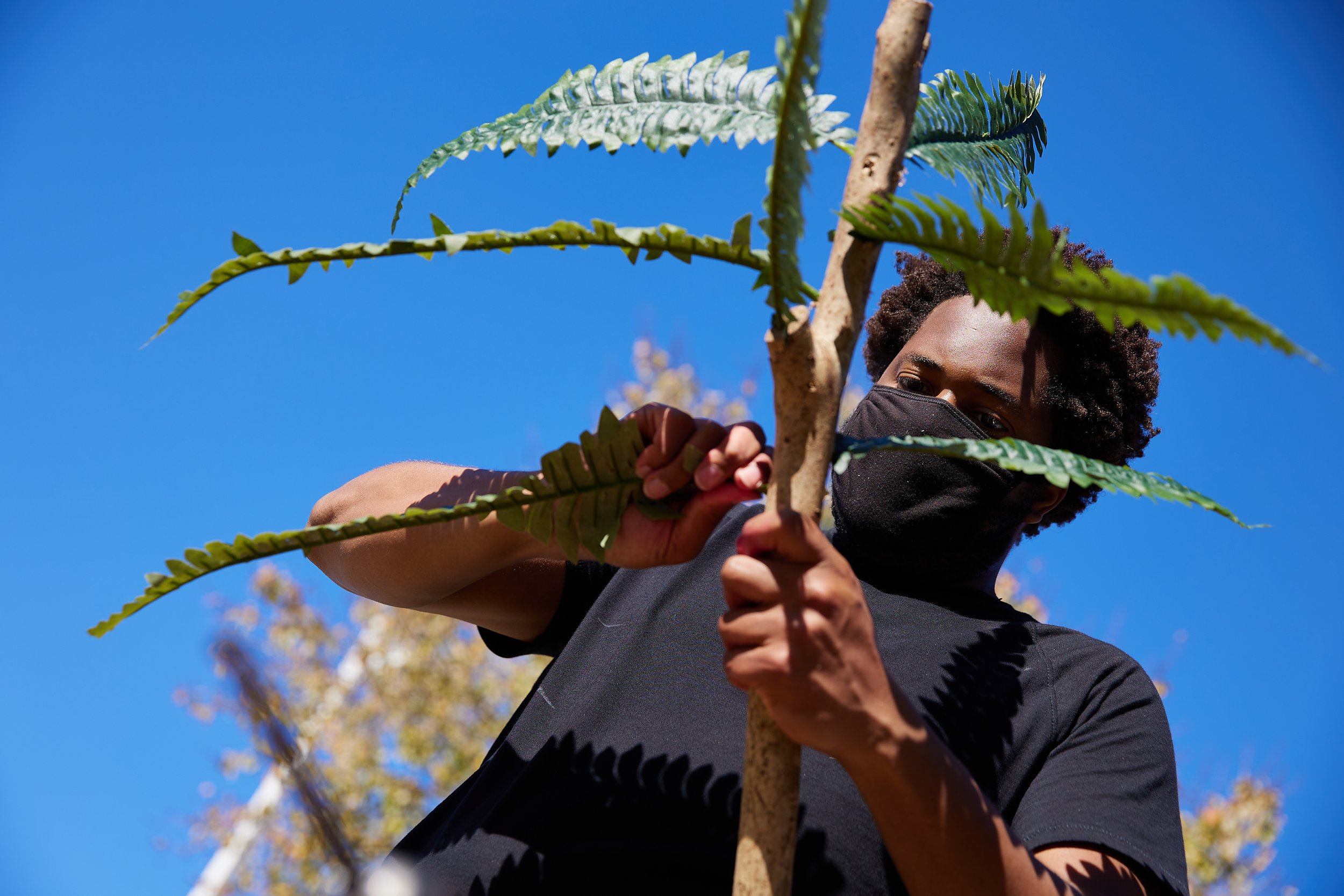
Classrooms Anywhere
Insights from Community-driven Education Models

Classrooms Anywhere
Insights from Community-driven Education Models

VELA is a national nonprofit fund supporting a community of innovators. VELA seeds early-stage, non-traditional education models created by everyday entrepreneurs: students, parents, educators, and community members who use their talents and resourcefulness to create their own ventures.
In Fall 2021, VELA conducted a survey of recent Micro grant recipients to gain an understanding of their values, their desired impact, and the resources needed to continue providing programs that meet their learners’ and families’ needs. This report summarizes seven key findings from 323 survey responses.

Zucchinis Homeschool Co-op, Georgia

Zucchinis Homeschool Co-op, Georgia
What did we learn?
1/ Nontraditional learning is diverse and dynamic.
Everyday entrepreneurs are responding to children’s educational needs by designing a wide variety of program models and services, spanning a range of learning environments, learning content, and support services for families and learners. VELA grant recipients work across the country in metropolitan, suburban, and rural communities. A plurality of these recipients identify as entrepreneurs serving learners and families outside their own homes, and the majority identify as people of color.
2/ Everyday entrepreneurs are motivated to reimagine learning.
Nontraditional environments encourage the kind of experimentation that grant recipients believe is necessary for individualized, relevant, and affirming education that focuses on the whole child. Nontraditional models are singularly focused on meeting students’ needs through creative approaches.
3/ Models prioritize human development.
Grant recipients define and measure success in terms of human flourishing and, in turn, meeting higher-order needs: social needs such as inclusion, belonging, and a sense of community and connection; esteem needs including self-esteem, confidence, respect, and recognition; and self-actualization needs, i.e. the ability to discover and pursue one’s potential.
4/ Nontraditional models measure success consistently with their values.
Grant recipients prioritize responsiveness to learners and families above all else, and evaluate their programs by their ability to meet learners’ and families’ needs and expectations. To measure learners’ success, they do not generally assess performance using standardized testing or other quantitative assessments. Instead, they rely on other assessment methods—such as observations, projects, portfolios, and self-reflection from learners and families—and deliver those assessments in the context of a supportive environment that prioritizes learner and family flourishing.
5/ Nontraditional models prioritize family engagement.
Grant recipients want families and learners to have agency in their educational experiences. Grant recipients report that they want 1) to help families understand that they have meaningfully distinct choices for their learners in terms of learning approaches and educational format, 2) to support families in making the best choices for each individual learner, and 3) to equip families to lead their learners’ education.
6/ Everyday entrepreneurs are hyper-focused on increasing access.
As grant recipients reflect on desired changes in their local education systems, many cite inequitable access to high-quality experiences among their top concerns. They want to change what learning content and experiences are available and who can access them. Their goal is to establish models that can provide equitable access.
7/ Everyday entrepreneurs’ needs are many and immediate.
Many grant recipients are nascent organizations whose founders are motivated by the immediate needs of learners and their families. Often they have little time for or experience with the logistics of day-to-day operational management. They report that they need peer learning and connection, mentors, and tactical support to build their daily operations and scale.
Nontraditional learning is diverse and dynamic.
Everyday entrepreneurs are responding to children’s educational needs by designing a wide variety of program models and services, spanning a range of learning environments, learning content, and support services for families and learners. VELA grant recipients work across the country in metropolitan, suburban, and rural communities. A plurality of these recipients identify as entrepreneurs serving learners and families outside their own homes, and the majority identify as people of color.
Everyday entrepreneurs are motivated to reimagine learning.
Nontraditional environments encourage the kind of experimentation that grant recipients believe is necessary for individualized, relevant, and affirming education that focuses on the whole child. Nontraditional models are singularly focused on meeting students’ needs through creative approaches.
Models prioritize human development.
Grant recipients define and measure success in terms of human flourishing and, in turn, meeting higher-order needs: social needs such as inclusion, belonging, and a sense of community and connection; esteem needs including self-esteem, confidence, respect, and recognition; and self-actualization needs, i.e. the ability to discover and pursue one’s potential.
Nontraditional models measure success consistently with their values.
Grant recipients prioritize responsiveness to learners and families above all else, and evaluate their programs by their ability to meet learners’ and families’ needs and expectations. To measure learners’ success, they do not generally assess performance using standardized testing or other quantitative assessments. Instead, they rely on other assessment methods—such as observations, projects, portfolios, and self-reflection from learners and families—and deliver those assessments in the context of a supportive environment that prioritizes learner and family flourishing.
Nontraditional models prioritize family engagement.
Grant recipients want families and learners to have agency in their educational experiences. Grant recipients report that they want 1) to help families understand that they have meaningfully distinct choices for their learners in terms of learning approaches and educational format, 2) to support families in making the best choices for each individual learner, and 3) to equip families to lead their learners’ education.
Everyday entrepreneurs are hyper-focused on increasing access.
As grant recipients reflect on desired changes in their local education systems, many cite inequitable access to high-quality experiences among their top concerns. They want to change what learning content and experiences are available and who can access them. Their goal is to establish models that can provide equitable access.
Everyday entrepreneurs’ needs are many and immediate.
Many grant recipients are nascent organizations whose founders are motivated by the immediate needs of learners and their families. Often they have little time for or experience with the logistics of day-to-day operational management. They report that they need peer learning and connection, mentors, and tactical support to build their daily operations and scale.

Heartwood Agile Learning Center, Georgia

Heartwood Agile Learning Center, Georgia
Where do we go from here?
For VELA and similar organizations: Survey respondents emphasized that they want connections to others like them; ideas, resources, and best practices to learn and grow from; tactical operations support; and opportunities to support others. VELA is growing and adapting to meet these needs, and is also hoping other organizations will join in this work.
For philanthropy: The amount of public funding and philanthropic dollars going to traditional education options vastly exceeds the current support for nontraditional approaches. VELA hopes that more philanthropists fill the vacuum and also adopt approaches that embrace trust, invest in early-stage ideas, and minimize bureaucratic processes.
For educators and policymakers: Families want the flexibility to make the educational decisions that they believe are best for their children. They are asking educators and policymakers to make it easier for them to do so, especially with more resources for nontraditional approaches and more collaboration between nontraditional and traditional systems.
For future research: Many respondents are nascent organizations and are experiencing high demand. They want to build and scale thoughtfully. Everyday entrepreneurs want practical details about how others have solved key problems of practice, designed their program models, developed responsive content, or measured learning and impact. VELA intends to work closely with grantees to research these topics in deeper ways, to produce practical outputs, and to share learnings with the wider nontraditional education community.

Surf Skate Science, Florida
This initial outreach survey was designed primarily to capture qualitative data from grantees so that VELA’s analysis would be driven by the respondents’ own words.
Hear more about these everyday entrepreneurs in their own words in our VELA Selfies video series.
What makes a learning community that you feel loved and engaged in?
“What makes a learning community that you feel loved and engaged in?”
VELA’s charge is to cultivate the conditions for out-of-system entrepreneurs to transform the future of education so that it better aligns with the values and priorities of families.
VELA invests in everyday entrepreneurs on a trust basis, seeding early-stage programs outside the traditional K–12 system. Rather than dictating solutions to its grantees, VELA asks them to identify the needs of their communities and supports their strategies for meeting those needs.
To date, VELA has awarded more than 1,300 grants totaling over $11 million to support these non-traditional education models. Grant recipients include students, parents, educators, and community leaders. They reside in all 50 of the United States, as well as Washington, D.C., Puerto Rico, and the U.S. Virgin Islands.
In addition to the funding itself, VELA is creating a dynamic community of grant recipients, focused on building connections and increasing awareness of this trailblazing work. Through a private online community, grant recipients enjoy access to collaboration and programming opportunities, and receive communications support, including media outreach and video storytelling.
VELA’s charge is to cultivate the conditions for out-of-system entrepreneurs to transform the future of education so that it better aligns with the values and priorities of families.
VELA invests in everyday entrepreneurs on a trust basis, seeding early-stage programs outside the traditional K–12 system. Rather than dictating solutions to its grantees, VELA asks them to identify the needs of their communities and supports their strategies for meeting those needs.
To date, VELA has awarded more than 1,300 grants totaling over $11 million to support these non-traditional education models. Grant recipients include students, parents, educators, and community leaders. They reside in all 50 of the United States, as well as Washington, D.C., Puerto Rico, and the U.S. Virgin Islands.
In addition to the funding itself, VELA is creating a dynamic community of grant recipients, focused on building connections and increasing awareness of this trailblazing work. Through a private online community, grant recipients enjoy access to collaboration and programming opportunities, and receive communications support, including media outreach and video storytelling.

















